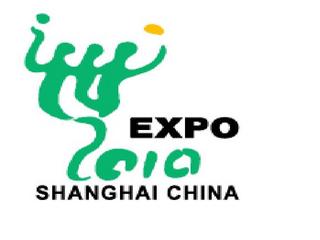The EU has decided to turn to Russia for some of its oil needs to reduce the continent's dependence on OPEC.
Published:
16 October 2000 y., Monday
A long-term agreement with Russia would benefit Europe by allowing it to diversify its energy sources, but it would also force EU officials into some difficult policy choices.
Russia has already indicated that its assistance would come at a price.
Russian deputy prime minister Viktor Khristenko told EU leaders in Brussels a few weeks ago that Russia wants its energy transit to bypass Ukraine. Russian officials widely suspect Ukraine of illegally siphoning off energy and pocketing the profit.
And Russian Deputy Foreign Minister Ivan Ivanov said earlier this week that Russia also wants the EU to drop its support for the Baku-Ceyhan pipeline, sponsored by the US and Turkey. The pipeline, if completed, would bypass Russia.
Observers call the EU proposal for energy cooperation with Russia the "Prodi plan," after European Commission president Romano Prodi. He was the first to present it to Russia.
The plan envisages a swap of Russian energy for EU assistance. It was largely worked out between Germany and the commission.
Russia has large energy reserves, but has little resources to exploit them. The export of gas and oil requires expensive transit facilities.
Under the Prodi plan, the EU would use its political influence and technical assistance to channel foreign investment into Russian energy transit. In return, Russia would guarantee the EU a significant supply of energy for the next 20 years.
Emerson says the EU is likely to promote an even-handed approach to transit routes, supporting the idea of multiple pipelines. This is borne out by the Commission's external relations spokesman Gunner Wiegand, who says the EU has no official strategic preferences. According to Wiegand, the deciding factors as to transit routes must be commercial viability, private sector interest and their multiplicity.
Yet the placing of transit routes has obvious geo-political implications.
Emerson says that while Russia and the United States are involved in what he called "great games" of strategy, the EU was not willing to view its choices in such terms.
The EU does not have a cohesive energy strategy at this stage, but has been prompted into formulating such a strategy by the recent rise in world oil prices and by widespread protests by citizens complaining about high taxes on fuel.
Šaltinis:
rferl.org
Copying, publishing, announcing any information from the News.lt portal without written permission of News.lt editorial office is prohibited.
The most popular articles
 The European Parliament's proposal for its own operational budget for 2011 includes the financing of measures in preparation for enlargement with Croatia.
more »
The European Parliament's proposal for its own operational budget for 2011 includes the financing of measures in preparation for enlargement with Croatia.
more »
 Links between business and the academic world need to be strengthened but higher education institutions must retain their autonomy and public support, says a resolution adopted on Thursday by the European Parliament.
more »
Links between business and the academic world need to be strengthened but higher education institutions must retain their autonomy and public support, says a resolution adopted on Thursday by the European Parliament.
more »
 The Spanish Minister of Economy and Finance, Elena Salgado, will present the additional fiscal tightening measures set out by the Spanish Government to her eurozone (Eurogroup) counterparts on Monday; the measures were required by Spain’s European partners as a condition of approving the plan to bolster the euro on 9 May.
more »
The Spanish Minister of Economy and Finance, Elena Salgado, will present the additional fiscal tightening measures set out by the Spanish Government to her eurozone (Eurogroup) counterparts on Monday; the measures were required by Spain’s European partners as a condition of approving the plan to bolster the euro on 9 May.
more »
 The European Commission has opened an in-depth investigation under EU State aid rules into capital injections destined to two subsidiaries of state owned company Elan Skupina in Slovenia.
more »
The European Commission has opened an in-depth investigation under EU State aid rules into capital injections destined to two subsidiaries of state owned company Elan Skupina in Slovenia.
more »
 GDP growth in the EU expected to gradually pick up, though recovery less robust than past upturns.
more »
GDP growth in the EU expected to gradually pick up, though recovery less robust than past upturns.
more »
 The EESC tabled its opinion on the regulation of alternative investment funds, such as hedge funds and private funds. Although endorsing the much debated proposal of the European Commission, the EESC calls for uniform risk data provision for all such funds and emphasizes their responsibility in triggering the crisis.
more »
The EESC tabled its opinion on the regulation of alternative investment funds, such as hedge funds and private funds. Although endorsing the much debated proposal of the European Commission, the EESC calls for uniform risk data provision for all such funds and emphasizes their responsibility in triggering the crisis.
more »
 Concluding the process and deciding on the schedule for releasing the funds agreed on for Greece, as well as examining and learning lessons from the crisis for the governance of the eurozone, will be the focus of the discussions of the heads of state and government at the meeting in Brussels this Friday.
more »
Concluding the process and deciding on the schedule for releasing the funds agreed on for Greece, as well as examining and learning lessons from the crisis for the governance of the eurozone, will be the focus of the discussions of the heads of state and government at the meeting in Brussels this Friday.
more »
 The EU pavilion at the world expo in Shanghai marks the first time the EU has presented itself to a large Chinese audience.
more »
The EU pavilion at the world expo in Shanghai marks the first time the EU has presented itself to a large Chinese audience.
more »
 Shanghai's World Expo offers visitors plenty of fun offering bizarre things to do at over 200 pavillions competing for attention.
more »
Shanghai's World Expo offers visitors plenty of fun offering bizarre things to do at over 200 pavillions competing for attention.
more »
 The European Investment Bank (EIB) is providing a loan of EUR 150 million to MVM Zrt. for the capacity increase and the extension of a high-voltage transmission network, partly constituting priority axes of the Trans-European Energy Network (TEN-E) in Hungary.
more »
The European Investment Bank (EIB) is providing a loan of EUR 150 million to MVM Zrt. for the capacity increase and the extension of a high-voltage transmission network, partly constituting priority axes of the Trans-European Energy Network (TEN-E) in Hungary.
more »